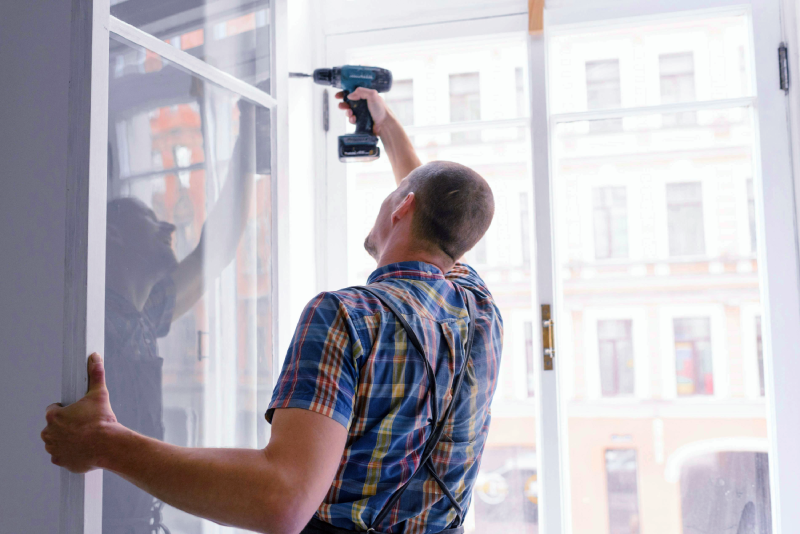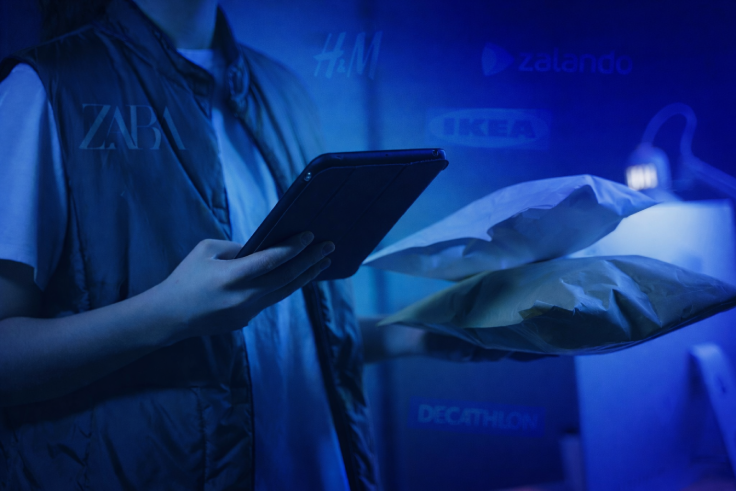Back to all Articles
Karol Andruszków
Karol is a serial entrepreneur who has successfully founded 4 startup companies. With over 11 years of experience in Banking, Financial, IT and eCommerce sector, Karol has provided expert advice to more than 500 companies across 15 countries, including Poland, the USA, the UK, and Portugal.
7 AI Innovations That Are Making Waves in the Beauty Industry
Updated:
Wed, Jan 7
Reading time: 11 minutes
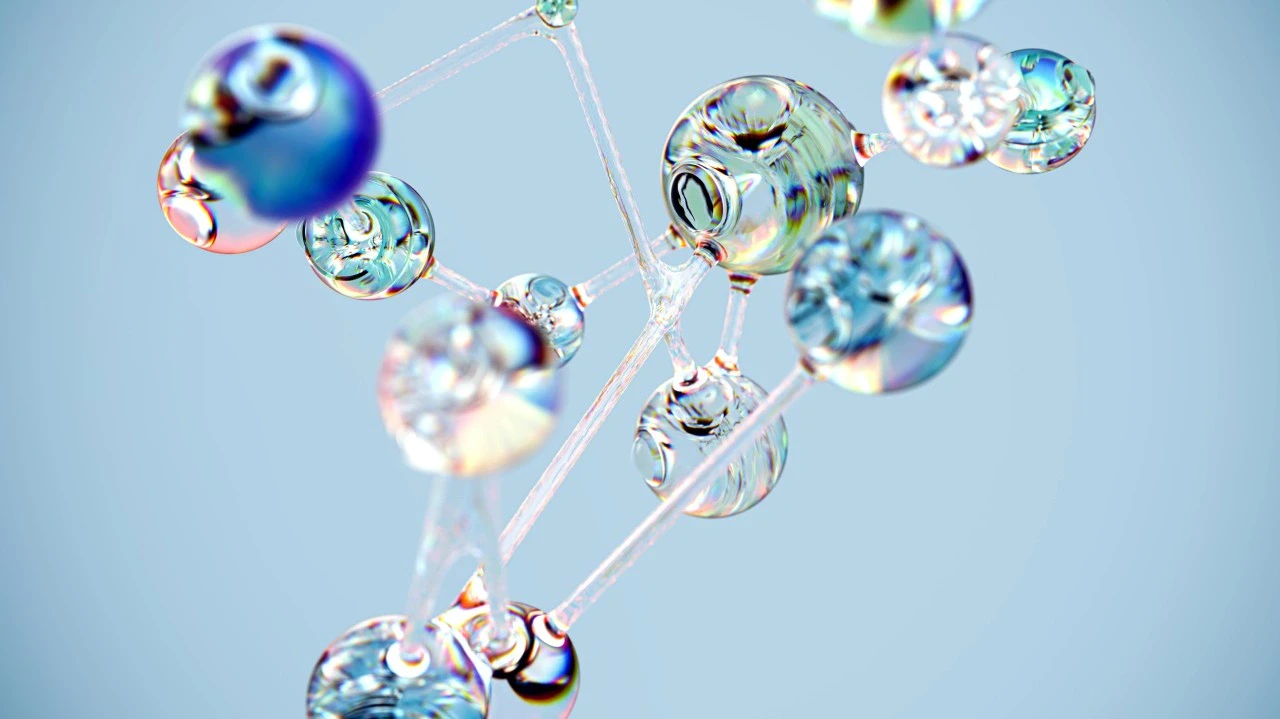
What if AI could predict the next beauty trend before your customers even know they want it?
Launching a skincare product that’s already optimized for millions of users is the upcoming future. Or an AI-powered advisor that sells more foundation than your top beauty consultant.
Analysts predicts AI will add billions $ to the beauty market in the coming years. Early adopters are already seeing returns of investments.
The question isn’t if AI will transform beauty brands, but how fast they’ll act before competitors take the lead.
The question isn’t if AI will transform beauty brands, but how fast they’ll act before competitors take the lead.
In this article, we explore the most interesting AI innovations in beauty industry. You’ll discover how AI is impacting skincare, color cosmetics, beauty devices, and fragrances.
Current State of AI in the Beauty Sector
A 2025 McKinsey report estimates that generative AI could add $9–$10 billion to the beauty industry. The analysis warns that AI will widen the gap between fast-moving brands and those that lag. Companies that adopt AI quickly will gain market share, while slower ones may struggle to compete.
AI is becoming a key competitive advantage. Startups use advanced algorithms to deliver hyper-personalized products and engaging digital experiences. Brands are responding by acquiring AI startups or building in-house data science teams. This race is driving rapid innovation across the industry.
For consumers, AI means more personalized and convenient beauty solutions. Customers are seeing apps and websites that provide instant recommendations and new experiences. AI-powered advisors are already emerging.
The next step could be systems that grasp emotions, lifestyle factors, and unique skincare needs. Experts predict that AI will soon map facial features and external conditions, like climate and diet, to offer even more precise suggestions.
AI is also changing product development. By analyzing large-scale consumer feedback, it identifies unmet needs and emerging trends. This insight helps brands create products that perfectly align with customer demand.


Market size and growth:
- The use of AI in the beauty and cosmetics industry is growing fast. Right now, the market is worth a few billion dollars, but by 2029, it’s expected to reach $9.44 billion. That means it’s growing at a steady rate of 21% each year.
- About 1 in 4 people in the U.S. (28%) are willing to spend extra money on beauty products that are customized for them using AI technology.
- 32% of personal care businesses say AI has already impacted their work in the past year. Nearly half of them plan to invest in AI technology within the next five years.
What do we know from early AI adoptors in beauty industry:
- No7 introduced an AI-powered skincare advisor that suggests products based on a person’s skin type. This led to a 3.6x increase in the number of people making a purchase and a 48% boost in the average amount spent per order.
- JCPenney implemented an AI-powered makeup artist feature to enhance the customer experience. The AI makeup artist led to a 108% increase in conversion rates.
- Oddity Tech implemented AI and data science to offer personalized product recommendations. The company reported a 52% increase in adjusted earnings per share and a 26% growth in revenue for the quarter ending September 2024.
- Avon added an AI-powered virtual try-on feature to its website, letting customers see how products look before buying. As a result, Avon saw a 320% jump in purchases, a 94% increase in the number of products people browsed, and a 33% rise in how much customers spent per order.
- Olay's Skin Advisor uses AI to analyze a person's skin and recommend the right products. It accurately predicts skin age 90% of the time and has led to a 200% increase in purchases.
Top 7 Innovative AI Solutions in the Beauty Industry
The AI combined with creativity has unlimited potential. Beauty companies are looking for innovative ways to sell more, engage customers, and provide new experiences.
Below we gather the most innovative examples of AI use cases in the Beauty Sector:
Below we gather the most innovative examples of AI use cases in the Beauty Sector:
1. Revela (AI-Discovered Skincare Ingredient)
Revela is using AI to advance skincare research. The company built a platform that screens millions of compounds to find those with beneficial effects on the skin. Between 2022 and 2023, this led to the discovery of Fibroquin, a molecule that improves skin firmness and elasticity.
After lab and clinical testing, Revela launched a serum with Fibroquin. This would have been unlikely without AI to sift through huge chemical libraries. This case shows how an agile startup used AI to compete with (and even outpace) big cosmetics companies’ R&D.
2. Proven (Personalized Beauty)
Proven uses an AI engine called the Skin Genome Project. AI engine process data from over 100,000 skincare products, 8 million reviews, and scientific papers. When customers take Proven’s online quiz, AI matches their answers to this data to create a custom skincare regimen.
Meanwhile, Prose started in haircare and expanded to skincare with a similar model. In interview to CosmeticsDesign, the company says:
When a customer completes our online consultation, AI-powered algorithms generate customized formulations based on individual data.
Milene Chasseur
Prose’s AI selects optimal ingredients from a large catalog to create individualized products. Prose’s algorithm is continually learning – it incorporates feedback and outcomes to improve recommendations
3. Liquid Sound (Sount to Scent Technology)
Liquid Sound is a startup redefining fragrance creation with its AI-powered sound-to-scent technology. This innovation allows users to transform recorded sounds into personalized fragrances.
The process begins when users record a sound on Liquid Sound’s website. AI then analyzes the audio in multiple stages to convert it into a unique fragrance.
First, it removes irrelevant noise to focus on essential sound patterns. Next, it detects key notes and matches each one with a corresponding scent. Then, the system performs a statistical analysis to define how these scent notes should blend into a perfume composition. Finally, the AI generates a structured fragrance formula, breaking it down into top, middle, and base notes.
First, it removes irrelevant noise to focus on essential sound patterns. Next, it detects key notes and matches each one with a corresponding scent. Then, the system performs a statistical analysis to define how these scent notes should blend into a perfume composition. Finally, the AI generates a structured fragrance formula, breaking it down into top, middle, and base notes.
In Ulan Software, we built the AI system behind the Liquid Sound’s platform. Our close collaboration proves how technology and creativity can create something extraordinary. Check our Portfolio: AI Perfume Generator to learn more about collaboration.
4. Perfect Corp (AI +VR)
Perfect Corp provides AI and AR solutions for cosmetics brands worldwide. Its YouCam Makeup app and SDK use face tracking and machine learning to let users try on makeup virtually. The technology adapts to different lighting, skin tones, and even simulates textures like gloss or glitter.
A/B testing shows that customers using virtual try-on tools are more confident in their product choices. Startups like Perfect Corp help make advanced AI more accessible. Once limited to tech giants, these capabilities are now available to boutique beauty brands. Even smaller companies can offer a modern shopping experience that competes with major retailers.
5. Nimble Beauty (AI Robot Manicurist)
Nimble is a startup that created the at-home nail painting robot featured at CES. Using 2D/3D vision and AI, the Nimble device identifies the exact shape of a user’s nails and paints them. It applies base, color, and top coat, with precise brush control and no spillage.
The incorporation of AI is what allows Nimble to adjust to different nail sizes and curves. This is something very hard-coded machines couldn’t do.
This innovation was recognized in multiple CES 2024 roundups.
The incorporation of AI is what allows Nimble to adjust to different nail sizes and curves. This is something very hard-coded machines couldn’t do.
This innovation was recognized in multiple CES 2024 roundups.
6. NotCo (AI Fragrance Creation)
Another great example of using AI in the fragrance industry. In 2024, NotCo introduced its generative AI platform, Giuseppe, to create perfumes. Working with a fragrance house, NotCo’s AI analyzed tens of thousands of formulas to develop new scent combinations.
According to NotCo’s SVP of AI Product and Engineering, early tests of Giuseppe showed impressive results.
We began testing Giuseppe’s ability to evoke emotions through scents and were amazed by the early results. This new Formulator can craft bespoke fragrances in seconds; a process that traditionally took months and significant resources. This exciting new frontier for the industry makes novel, expert-quality fragrances accessible like never before for a wide range of product categories
NotCo shared in an interview with Businesswire
7. Haut.AI (AI-Powered Skin Analysis)
Haut.AI is a startup using generative AI to advance beauty and skincare intelligence.
Founded in 2018, the company specializes in AI-driven skin analysis and aging simulations. Its no-code skincare personalization software helps e-commerce brands deliver tailored customer experiences. Key products include Skin and Hair SaaS and SkinGPT, which use AI to analyze skin conditions and recommend the right products.
Founded in 2018, the company specializes in AI-driven skin analysis and aging simulations. Its no-code skincare personalization software helps e-commerce brands deliver tailored customer experiences. Key products include Skin and Hair SaaS and SkinGPT, which use AI to analyze skin conditions and recommend the right products.
Technology turns simple selfies into diagnostic tools. This makes online skincare shopping more interactive and precise.
The company also maintains one of the world’s largest balanced skin imaging datasets. It includes over 150 biomarkers, 3 million images, and more than a billion data points (including synthetic data).
The company also maintains one of the world’s largest balanced skin imaging datasets. It includes over 150 biomarkers, 3 million images, and more than a billion data points (including synthetic data).
AI in Skincare & Skin Health
Thanks to AI, customers can now analyze skin conditions instantly using a smartphone camera or smart device. Tools act simply like a “virtual dermatologist”. It can scan for issues like wrinkles, dryness, or acne and recommend the right products.
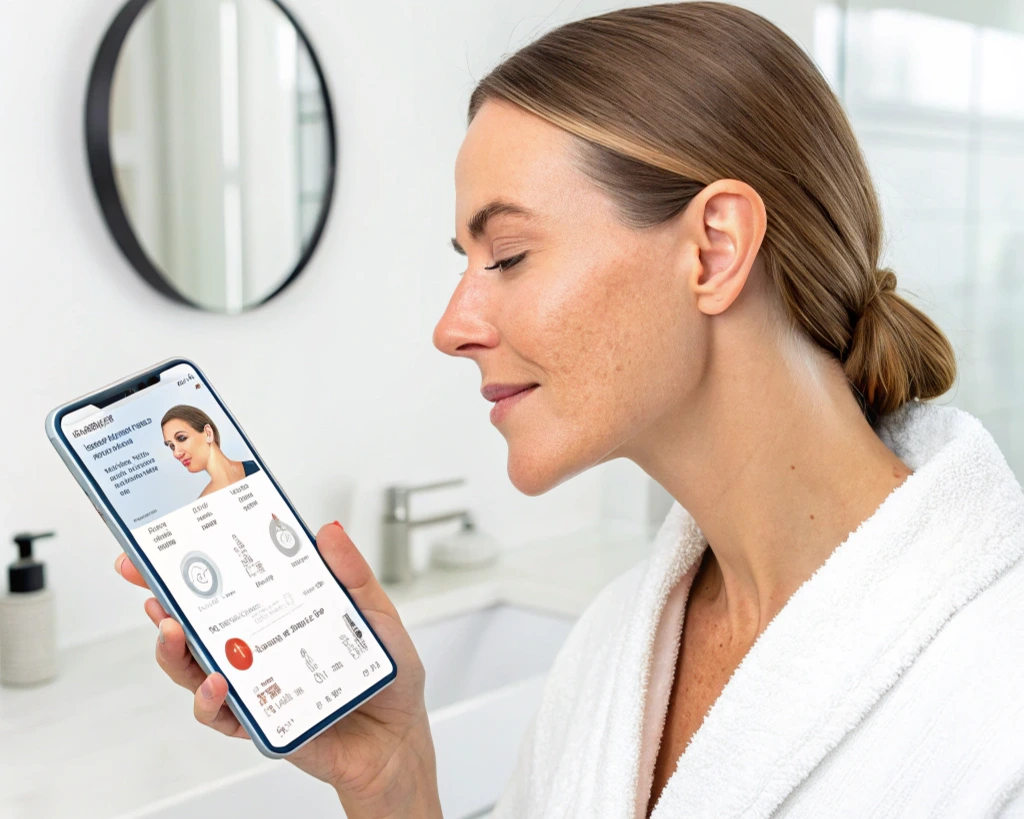

AI is also transforming personalized skincare formulas. The demand for AI-powered personalization is growing. Data shows that 75% of consumers are willing to pay more for skincare made just for them.
Beyond skincare routines, AI is impacting how new ingredients are discovered. Traditional testing is slow, but AI can screen millions of molecules in record time. This discovery process allows brands to create more effective and science-backed products. Without relying on outdated, costly, and lengthy testing methods.
AI in Cosmetics & Makeup
AI is changing the makeup industry by improving product creation and the shopping experience. Virtual try-on tools, powered by AR and AI, let users see how the makeup looks on their face in real time.
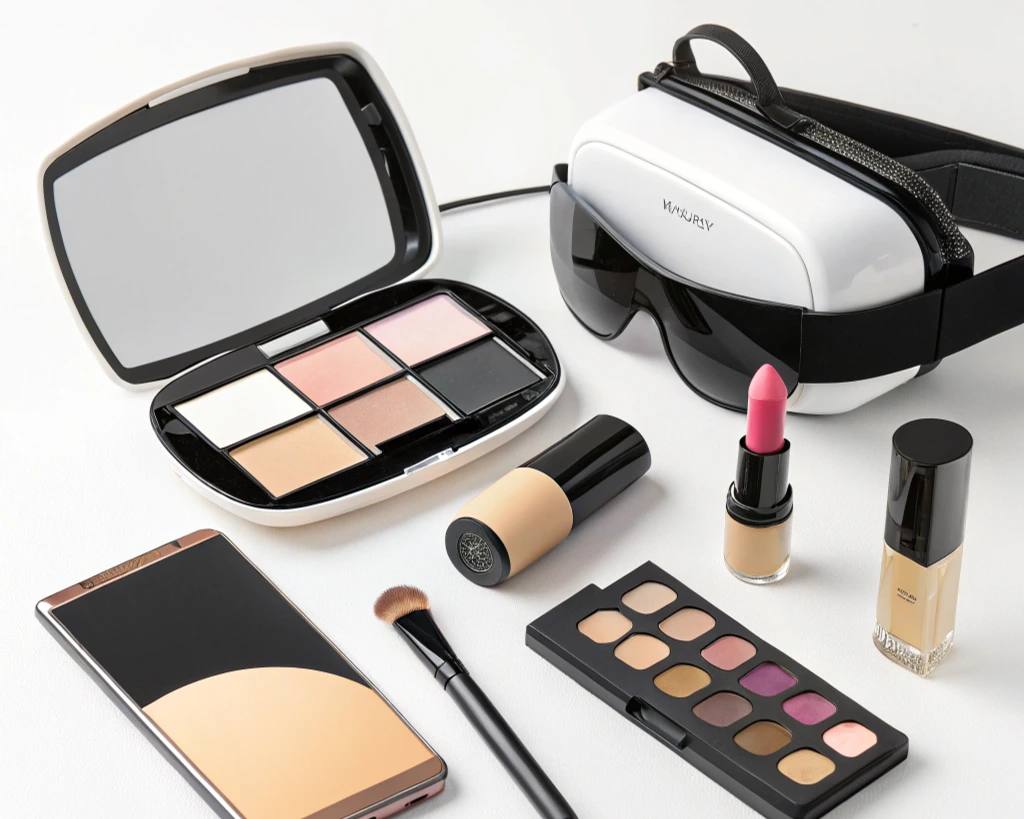

Beyond shade matching, Gen AI helps brands create new color palettes, test pigment blends, and speed up product development. In terms of retail, chatbots and advisors act as virtual beauty consultants, helping customers find the right products.
Live AI filters take this further, allowing users to test makeup dynamically, with effects adjusting as they move. Studies show that consumers are 1.5× more likely to recommend a brand when they engage with these interactive AI tools.
However, the biggest challenge for brands developing custom AI solutions is DATA. Data is the golden fuel behind every algorithm. AI training requires large, diverse datasets, but collecting this data can be difficult.
💡One smart approach is branded AR filters on social media. This will not only attract users but also provide valuable training data to improve AI accuracy.
💡One smart approach is branded AR filters on social media. This will not only attract users but also provide valuable training data to improve AI accuracy.
AI in Fragrances
AI is changing the way perfumes are made. It replaces slow, manual processes with intelligent automation and deep data analysis. Traditionally, perfume formulation relied on skilled perfumers, years of experience, and extensive testing.
Now, generative AI can analyze massive scent databases and create unique formulas in seconds. This way the fragrance development process is faster and more efficient.
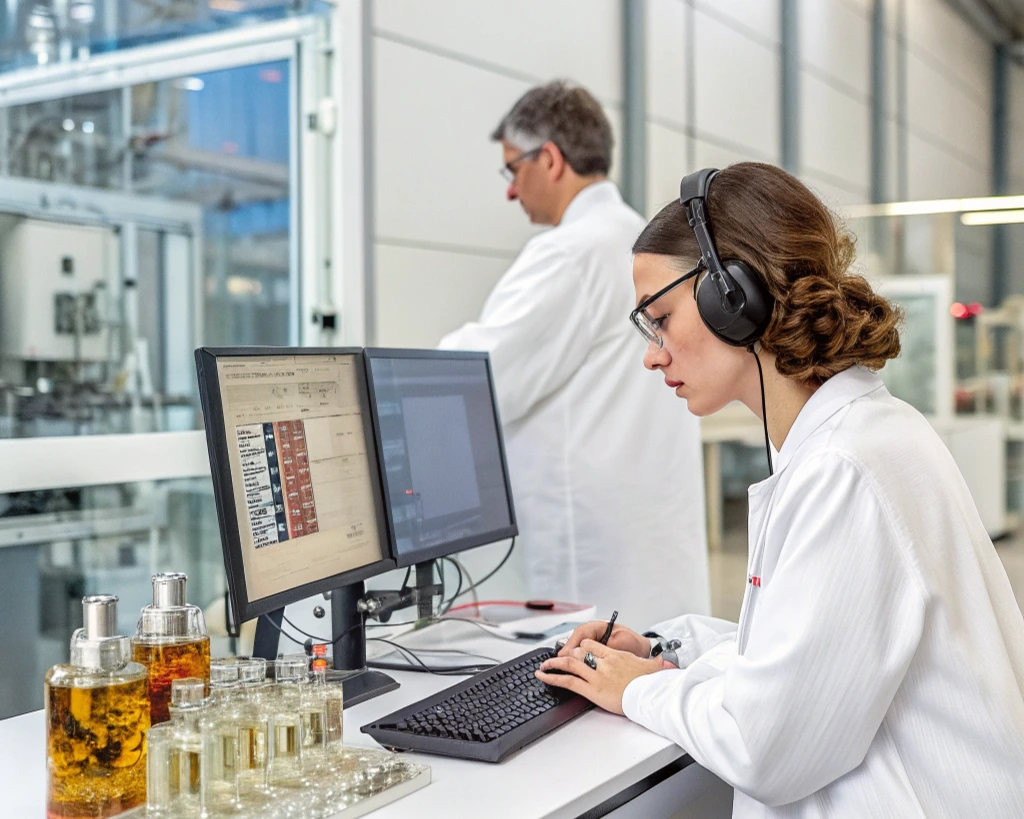
Now, generative AI can analyze massive scent databases and create unique formulas in seconds. This way the fragrance development process is faster and more efficient.

AI is also can make fragrances more personalized. At CES 2024, YSL Beauty introduced “Scent-Sation”. This is a headset that tracks brainwave responses to different scents and recommends a perfect match. Brands can use AI-powered neuroscience to understand preferences and make more precise recommendations.
This shift has major implications for the industry. What was once a niche luxury—custom fragrance creation—is now accessible to a wider audience. However, this also raises questions.
Will AI support traditional perfumers or gradually reduce the need for human expertise in scent creation?
Will AI support traditional perfumers or gradually reduce the need for human expertise in scent creation?
One thing is pretty clear: AI isn’t replacing creativity - it’s expanding it.
Wondering how AI enhances customer touchpoints in beauty?
Discover in our latest article: How the Beauty Industry Uses AI to Boost Sales
Wondering how AI enhances customer touchpoints in beauty?
Discover in our latest article: How the Beauty Industry Uses AI to Boost Sales
AI-powered Beauty Devices & Tools
AI is making at-home beauty treatments smarter and more precise. Devices like Armani Beauty Meta Profiler use 18 sensors to scan skin for texture, hydration, and smoothness.
Based on the results, it applies custom microcurrent and LED therapy tailored to the user. Similarly, Medicube’s Booster Pro offers clinical-grade skincare without a salon visit.
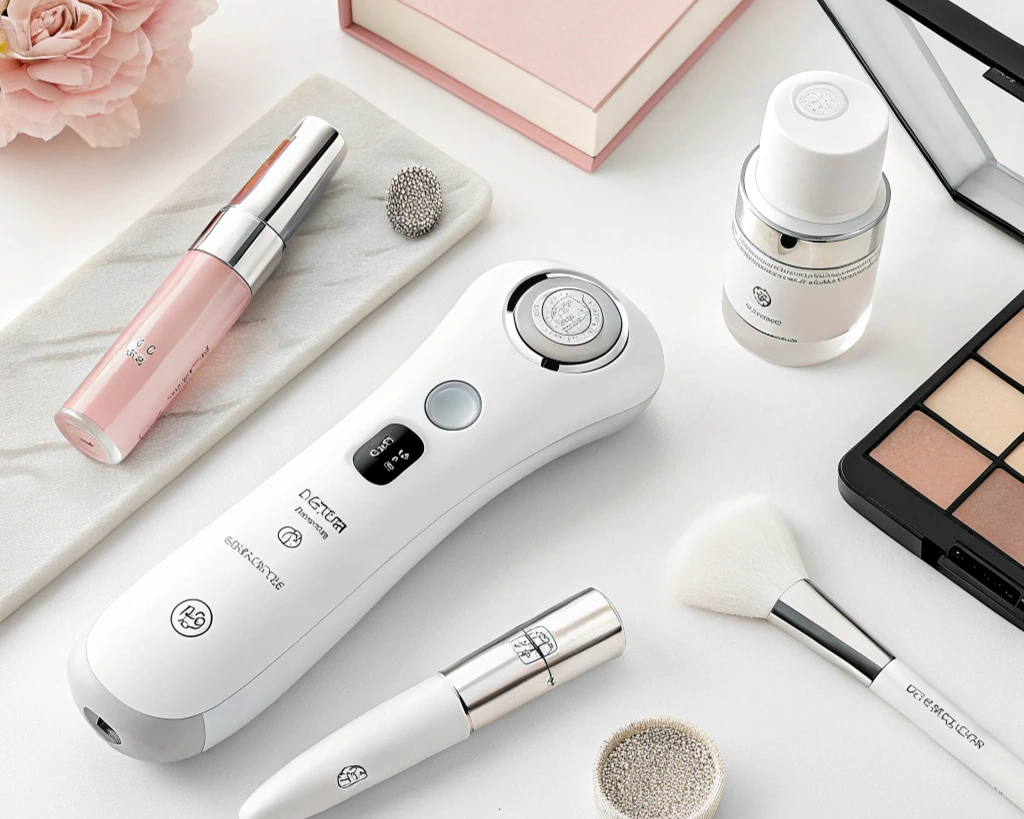
Based on the results, it applies custom microcurrent and LED therapy tailored to the user. Similarly, Medicube’s Booster Pro offers clinical-grade skincare without a salon visit.

Beyond treatments, AI-powered beauty tools now offer real-time guidance. Beauty technology is moving toward fully automated, expert-level treatments at home.
One of the trends in beauty tech is the rise of dedicated mobile apps for smart beauty devices. These apps use AI and IoT to analyze skin and hair in real time. Then app offers personalized regimens, product recommendations, and progress tracking.
They sync with beauty tools to collect data and suggest the best products based on individual needs. For brands, this drives cross-selling, loyal customer relationships, and higher value-added service.
They sync with beauty tools to collect data and suggest the best products based on individual needs. For brands, this drives cross-selling, loyal customer relationships, and higher value-added service.
Final Thoughts
The beauty industry is evolving, and technology is the driving force.
Whether it’s AI-driven skincare, virtual try-ons, or fragrance creation, the opportunity is now.
Whether it’s AI-driven skincare, virtual try-ons, or fragrance creation, the opportunity is now.
If you’re ready for AI implemetation, you don’t have to start from scratch. Our team builds AI solutions that drive real results - faster product innovation, better customer engagement, and higher sales.
Let’s talk about how AI can transform your business. Reach out today and take the lead in beauty’s next evolution.
Karol Andruszków
Karol is a serial entrepreneur who has successfully founded 4 startup companies. With over 11 years of experience in Banking, Financial, IT and eCommerce sector, Karol has provided expert advice to more than 500 companies across 15 countries, including Poland, the USA, the UK, and Portugal.
Table of Contents:
Recommended Articles
Wed, Feb 11
How to Build a Handyman Services Marketplace
Build a handyman services marketplace in 2026. Step-by-step guide: trends, features, business models, tech stack, and expert tips for founders and CTOs.
Fri, Jan 30
Why Big Brands Are Launching Second-Hand Recommerce Platforms?
Why big brands launch second-hand recommerce platforms. Examine real data, case studies, and results from IKEA, H&M, Zara, Zalando, and Decathlon.
Mon, Jan 26
How to Build Second-Hand Marketplace Platform Like Vinted? Part III: Strategy
Discover how Vinted built a scalable second-hand marketplace by sequencing growth, monetization, trust, and expansion the right way.
